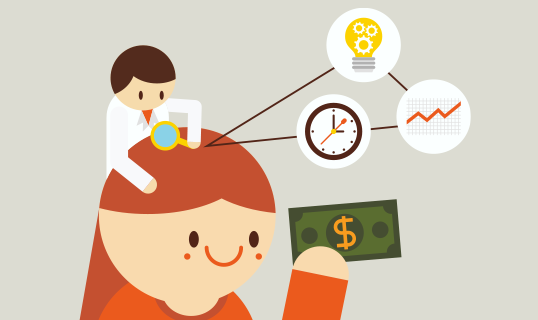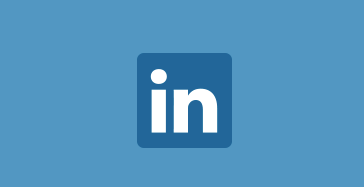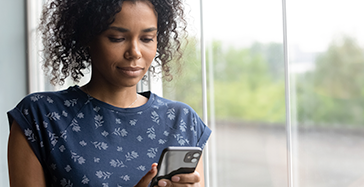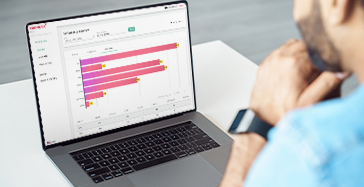Thought Leadership
A Hotelier’s Guide to the Psychology of Upselling

Why do you buy the things you do? That’s the question that drives the entire marketing profession. The answer varies depending on the person and the product but once the ‘code is cracked,’ marketers can craft the messages that will increase sales. For hotelier’s, this mean understanding the psychology of upselling.
How businesses get you to spend more
Most people believe the choices they make result from rational analysis of available alternatives. In reality, while we are all different, our brains are prone to react in a similar manner. As MIT researcher Dan Ariely says, people are predictably irrational — and behavioral science can help us predict them. Therefore, when it comes to making purchases, if we understand and apply the learnings of human behavioral patterns, businesses have an opportunity to unlock significant value. If you want to increase revenue, understanding the psychology of your customers is a must.
However, most hoteliers don’t have a degree in psychology. But, good news! The vast majority of marketers aren’t psychologists. But that doesn’t stop many successful businesses regularly employ psychology in appealing to consumers. The retail industry has subjected us to psychological tricks for decades. How many times have you entered a supermarket and leave with more than what you originally intended to buy? Supermarkets are not just designed to fulfil needs. They’re a carefully designed journey of behavioral cues and sensory experiences with one simple aim: getting you to spend more.
Have you ever noticed how in virtually every supermarket in the world, the first thing you see when you walk through the doors is the brightly colored fruit and vegetables and the freshly cut flowers? After that you will be greeted by the bread. There are a couple of reasons for this. Not only do the bright colors and fresh food improve our mood, but those baking aromas without doubt make us just that little bit hungrier than we might have been. Sometimes the improvement is imperceptible but every tiny shift counts. When we are in better form – and hungry, we tend to spend more money.
Consumer psychology manipulation is used to great effect by well-known brands across all manner of niches and industries both offline and online. Netflix is one such example. You know those auto-play countdowns that pop-up showing you the next episode of your show, the selection of shows recommended for you to watch next, and even the specific thumbnails used for each show? Yep, you got it, consumer psychology is responsible for those! But Amazon is probably by far the best example of on an online retailer who artfully and effectively upsells and cross-sells using psychological practices. Amazon generated $386 billion in sales in 2020 – a record performance that delivered a yearly increase of over $100 billion. There are many reasons for Amazon’s success, one of which is that it clearly understands consumer psychology and how it can drive sales.
Psychology of Upselling: Successful upsell uses psychology as its chief operator
When it comes to upselling, hoteliers can apply principles of consumer psychology to drive consumer choices and ensure that they get the best guest experience, while at the same time boost revenue. The trick is to be suggestive to customers when in the buying mode. This includes crafting the upsell to stimulate the brain’s pleasure center, keeping the offer relevant and timely, and prioritizing your long-term relationship with the customer by ensuring it will add value to their lives while bringing in additional profits.
Here are some tactics to keep in mind:
- Don’t bombard the customer with too many options at one time. If everything is special, then nothing is special. Many hotels are so eager to upsell to guests, they jump the gun and push everything all in one go. Bombarding them with add-ons, extras and offers can cause stress and confusion. It can also take the fun out of the purchasing process.
- Timing is everything. Guests look for the best price on a reservation they can find for the options they think they need. For most people, something in their mind keeps them from buying the more expensive room. Once they reserve their room, they need to be happy for the rate they found – for a time. Eventually, they will forget about the rate and think more about the actual stay. That’s when they will be open for offers to improve their room choice…for only a few dollars more.
- Give your offers some context if you can. If you can bookend your ideal offer with a cheaper and more expensive offer, then the target offer can look most ideal by comparison.
The basic principles of consumer psychology are highly scalable; they can be applied to almost any business, from helping even the smallest of start-ups to large corporations increase their revenue. If you want to increase the value of your completed sales, encourage larger purchases and upsell additional product and services, learning how to direct and incentivize the customer journey is key. And the psychology of consumer behaviour can help you to do just this, unlocking significant value in the process.


